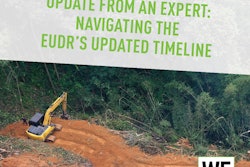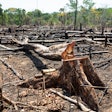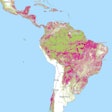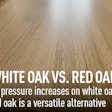The Gibson's case has certainly gotten guitar owners concerned. The 2008 Lacey amendment applies to any plant or plant product. We're not just talking flooring and furniture here.
Lacey covers the burl on a fancy car's dashboard and the rubber tires on bikes-or for that matter, any machinery with a rubber gasket. There's instant lemonade (pineapple pulp), maple syrup and chewing gum. We're looking at clothing containing rayon as well as pet shampoo (pine tar). Books and paper products might be obvious, as well as wine corks, but did you know lipstick contains wood rosin, so that's also covered by Lacey?
Many Americans might think, "Well that's good it covers so many items. If they are using illegally logged components then they deserve to be cracked down on!" Yet that very scope means Lacey isn't even being fully enforced.
Justice and APHIS (the Animal and Plant Health Inspection Service) and the other governmental organizations are stretched thin-despite their best efforts, APHIS can't even process the declarations they receive for the handful of products for which they are currently requiring submissions. Although Lacey requires APHIS to collect declarations for thousands of products, they aren't doing so at this time. (Ironically, doesn't that mean imported chewing gum or lipstick could be illegal since Congress requires a Lacey declaration upon entry and the form it isn't being collected?)
Lacey also has excessive, and unfortunately, really meaningless data requirements for species and genus names. Wood is traded under a commercial or trade name, but is rarely purely a single species of tree. However Lacey says that if you do not know exactly what species are in your product, you are require to list out any possible species that could be in there.
Wood professionals know that a commercially marketed species such as "red oak" can contain dozens of different species. The NHLA (National Hardwood Lumber Association) has traditionally marketed certain species purely under an "spp" definition-Carya spp., for example, is the traditional definition of both the pecans and hickories. But Lacey doesn't allow Carya spp. as a valid entry, which can make many declarations really rather absurd.
For example, say your leather furniture is made with a mixed U.S. hardwood lumber core. Your mill may use poplar, hickory, red oak, white oak or any number of other species, depending on what's available at the right price at the right moment. They may buy from brokers specializing in Southern material, or get a shipment from the Appalachian region one week and a Northern state the next. You never know what they will use from week-to week. Consequently, for every single entry you need to list every possible scientific name for every possible species they could use. That could be 100 different species since what is marketed as "red oak" could be a blend of 30-50 different Quercus species.
APHIS has tried to be practical in a few areas. Although it's not exactly what the letter of the law requires, APHIS has wisely created a special category for HDF and a few other products that are truly impossible to clearly declare-trying to figure out which grain of sawdust came from which species simply isn't feasible. They even have a category for "driftwood" now. But they don't accept "spp" for mixed species of the same genus. The idea is that you want to be able to track if the product is Quercus rubra or Quercus alba. But if you're importing plywood made of meranti, to be truly accurate, you might have to list over 250 different species, which makes it truly meaningless data.
Next week we'll look at efforts by a coalition seeking to amend Lacey so that it helps prevent illegal logging while not preventing commerce, trade, and the growth of an already struggling economy. The Lacey Act is a vital law that has protected wildlife and the environment for over 100 years. And the 2008 amendments were added with the best of intentions. But there were a lot of unintended consequences and questions raised by those amendments that mean there are ways we can make a good law even better.
































